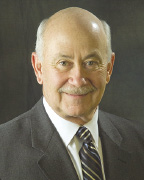Since the beginning of the year, CAI has continued to step up its efforts to secure access to federal disaster relief funds for community associations across the United States. CAI members impacted by Hurricane Sandy continue facing high recovery costs as local governments are being denied Federal Emergency Management Agency (FEMA) reimbursement for debris removal and other disaster recovery expenses in community associations.
CAI has engaged both federal legislators and regulators in an attempt to secure additional resources and flexibility for FEMA to fully respond to the aftermath of Hurricane Sandy. CAI believes affected regions should be granted equal access to federal disaster recovery programs. This is only the first step of a broader campaign to raise awareness with legislators on this issue. In 2013, CAI has met with the offices of U.S. Senators Robert Menendez (D-NJ), Frank Lautenberg (D-NJ), and Tim Scott (R-SC) as well as U.S. representatives Steve Israel (D-NY) and Eric Swalwell (D-CA). Additionally, in April, CAI sat down with regulators from FEMA's public assistance team to further discuss regulatory solutions to the inequity that exists towards community associations.
For decades, community associations have been denied equal access to federal disaster recovery assistance. With the efforts of CAI and its members, this can change. Residents of community associations should be treated equally with all other taxpayers.
During CAI's FEMA disaster relief fairness campaign, talking points have been developed to better educate members, legislators, and the public.
Primary Talking Points:
1) FEMA officials have been inappropriately applying the Stafford Act, preventing community associations from receiving federal disaster assistance. FEMA has determined that the particular nature of housing cooperatives, condominiums, and homeowner associations prevents these communities from benefitting from federal disaster relief efforts.
2) FEMA determined community associations collect assessments for the maintenance and repair of common areas and therefore FEMA cannot duplicate these association activities in disaster recovery. This finding disregards the fact that community associations do not collect assessments for recovery from presidentially-declared disasters. When these disasters strike, people living in community associations, like Americans in other forms of housing, do not have adequate resources to fully recover on their own.
3) FEMA has repeatedly refused to reimburse municipalities that provide disaster recovery services to community associations on the basis that any federal assistance would be a "duplication of benefit". FEMA's position ignores the fact that assessments cover routine maintenance of common property and fund reserves for long-term repair or replacement costs. Associations do not have the resources to prefund recovery costs for losses incurred in a presidentially-declared natural disaster.
4) The rejection of FEMA funds for community associations on the grounds of duplication of benefit would be similar to a municipality being denied federal disaster assistance because it taxes property owners and may use these proceeds in disaster response and recovery. FEMA would never deny assistance to a municipality on this basis, but it uses this logic to deny disaster recovery assistance to community associations. FEMA routinely issues exceptions to its standards to allow municipalities to clear debris from non-residential private property, but will deny reimbursement if debris removal takes place in a community association.
5) Presently, individual homeowners may apply for FEMA grants to restore the interior of their units or their individual homes, while a community association may not request a FEMA grant to repair an exterior roof, remove debris from essential roadways in their community, or to replace any vital operating systems destroyed by a natural disaster.
6) Owners in community associations pay the same taxes and are served by the same municipal emergency services such as fire and police that are provided for residents living outside of associations. Owners in community associations must likewise receive the same federal benefits as all other residents within a local jurisdiction in the aftermath of a natural disaster. FEMA must not divide equal tax payers into eligible and ineligible categories based on their choice of housing.
7) Although community associations may carry insurance to cover damages, these policies generally do not cover or are exhausted by major natural disasters. Similarly, non-association homeowners generally carry insurance to repair their property in case of damage. Yet FEMA does not see this as causing a homeowner to be ineligible for FEMA funds. This is simply another example of a double standard in the case of community associations.
8) For decades, community associations have been denied equal access to federal disaster recovery assistance. With your help and voice, this can change. Residents of community associations should be treated equally with all other taxpayers. Federal legislators must encourage FEMA to adjust its interpretation of the Stafford Act that classifies housing cooperatives, condominiums and homeowners associations as business associations.
At the core of this issue is the Robert T. Stafford Disaster Relief and Emergency Assistance Act (the "Stafford Act", 42 U.S.C. 5121-5206 and Related Authorities), which governs FEMA. The Stafford Act allows for financial assistance to states, counties, municipalities, as well as eligible "private nonprofit facilities," which are defined as entities that "provide essential services of a government nature to the general public."
CAI believes FEMA inappropriately applies this standard to community association roads by deeming that the services provided by associations are not "essential" or provided "to the general public." This interpretation of the Stafford Act prevents community associations from qualifying as eligible private nonprofit facilities thus preventing community associations and association homeowners from receiving all available federal disaster recovery benefits.
Paul Garrett, CMCA, AMS, PCAM, is 2013 CAI-NE chapter president, and president and CEO of Maine Properties, Inc., Scarborough, Me.
Tags:
 (1).png)








